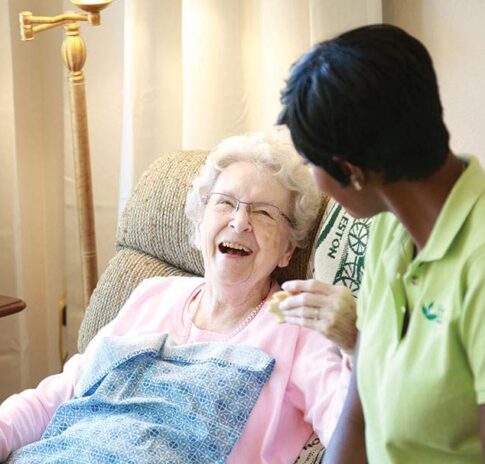 There comes a time in our lives when we must address the possibility of our parents needing home care. However, many people are concerned that with their limited budget they cannot afford to pay for it out-of-pocket. This is a difficult reality that most families will have to face, but home care is often the only alternative to placing their loved ones in a nursing home. The good news is that there are plenty of financial aid services that can help cover professional home care expenses. The following is a list of some financial alternatives that can help you pay for home care services.
There comes a time in our lives when we must address the possibility of our parents needing home care. However, many people are concerned that with their limited budget they cannot afford to pay for it out-of-pocket. This is a difficult reality that most families will have to face, but home care is often the only alternative to placing their loved ones in a nursing home. The good news is that there are plenty of financial aid services that can help cover professional home care expenses. The following is a list of some financial alternatives that can help you pay for home care services.
Medicare
Medicare will pay for professional home care services for eligible senior citizens. In addition to home care services, Medicare will cover nursing, physical, occupational, and
speech therapy services. The downside is that it has a very strict criteria that individuals must meet before receiving financial benefits.
Medicare Advantage Plans
More often than not, managed care plans often include coverage for home care services. Medicare Advantage plans are managed care plans for seniors that provide the same
benefits as standard Medicare but require prior authorization for home care services.
Medicaid
If an elder is low-income, Medicaid programs will support home care services in most states as an alternative to nursing homes. Medicaid is a joint federal-state medical
assistance program that requires states to provide home health services for
individuals in certain categories, such as aged, disabled, or blind.
Medigap Insurance
Sometimes even with the support of Medicare an individual will have gaps coverage that can leave them unable to pay for necessary services. Medigap Insurance is designed
to bridge these gaps in Medicare coverage. In order for it to help cover home care costs, a member must be receiving skilled home health care benefits and the patients physician must order this care.
Veterans’ Administration
Through the CHAMPVA program, active-duty or retired veterans of the U.S. military and their spouses, widows, and dependents can receive financial help for home care. In
addition, veterans who are at least 50% disabled due to service-related injuries and conditions are eligible for home care financial aid. If you or a loved one is a veteran and interested in their eligibility for these services, call 877-222-8387.
Private Insurance
If your parents have private insurance it should cover some home care services for patients with acute needs. However, longer care plans typically vary by insurer. The good news is that most plans will cover some of the expenses of home care when the patient is responsible for cost-sharing.
Long Term Care Insurance
As long as specific conditions are met, most long term care insurance programs will cover home care services. In order to determine if these conditions are met, insurance providers use “benefit triggers”. Although there are plenty of various benefits triggers, one common one is whether or not an individual can perform a certain number of daily living activities without assistance. The down side of long term care insurance is that individuals are often put on an elimination or waiting period before their home care services can become covered.
